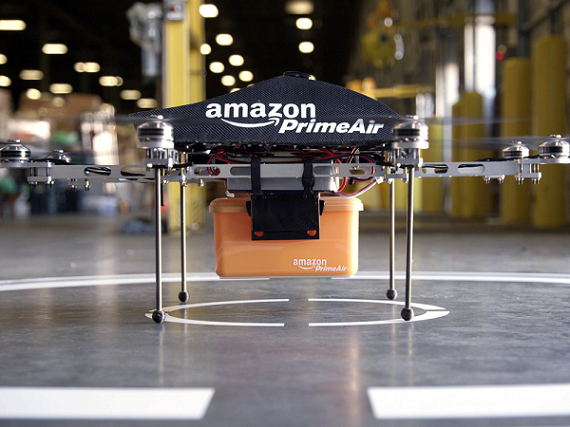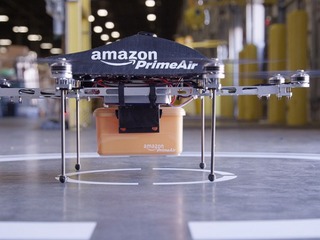
(Come mingle with hundreds of top venture capitalists representing $10B-plus in capital under management, including Khosla Ventures, Greylock and Javelin Venture Partners, and learn from founders/CEOs including Marco Zappacosta, Co-founder & CEO of Thumbtack and Adam Goldenberg, CEO of JustFab, Slava Rubin, Founder & CEO of Indiegogo, at Vator Splash Oakland on April 22nd and 23rd. Get your tickets here!)
Amazon hoped on the drone bandwagon pretty early on, but soon had its hopes dash multiple times by the Federal Aviation Administration. It seemed like we may never see a time when we’d have flying machines with boxes attached to them.
Oh, who are we kidding? Of course the FAA was going to cave eventually. And cave it just did.
Despite releasing new guidelines on operating drones earlier this year, which pretty much banned any kind of commercial usage, the FAA revealed on Thursday that it is now going to allow Amazon to test out drone delivery.
Amazon was issued an an “experimental airworthiness certificate,” which it will now use for “research and development and crew training.” The FAA says that it “typically issues experimental certificates to manufacturers and technology developers to operate a UAS that does not have a type certificate.”
There are some provisions: first, all flight operations must be conducted at 400 feet or below, they must take place during daylight hours “in visual meteorological conditions.” The drone must always remain within visual line-of-sight of the pilot and observer, and the pilot actually flying the aircraft must have at least a private pilot’s certificate and current medical certification.
Amazon is also being required to to provide monthly data to the FAA, including the number of flights conducted, pilot duty time per flight, unusual hardware or software malfunctions, any deviations from air traffic controllers’ instructions, and any unintended loss of communication links.
Ok, so these don’t exactly allow Amazon to just go ahead and start delivering packages to your doorstep. In fact, many of these rukes are some of the same regulations that the FAA put in place earlier this year. But it is a step in the right direction for Amazon, which after it announced in 2013 that it wanted to start delivering packages via drone, and has made it a top priority ever since.
The Federal Aviation Administration expressly forbade the practice, though, stating that any unmanned aerial vehicle not used for hobby or recreation, i.e. a commercial business like Amazon’s, was to remain illegal in the United States. Amazon asked for an exemption, but so far the FAA seems to be sticking to its guns. In response, Amazon began testing its drone development overseas, specifically in Cambridge. Perhaps the FAA might be able to lure them back now.
It was only a matter of time before Amazon was let back into the fold. After all, there is a lot of money at stake. Funding for startups in the drone space more than doubled in 2014 growing by 104%. Overall, $108 million was invested in a total of 29 deals during the year. The number of deals has jumped very quickly in just the last couple of years; a total of just five deals were done in the years spanning 2010 to 2012 combined, while 11 were completed in the third quarter of 2014 alone.
Even more money was spent on lobbying efforts for the industry; $186 million in total, up from only $35 million in 2011. I’m sure that had nothing to do with the FAA’s announcement today. Nothing at all.
(Image source: huffingtonpost.com)





















